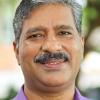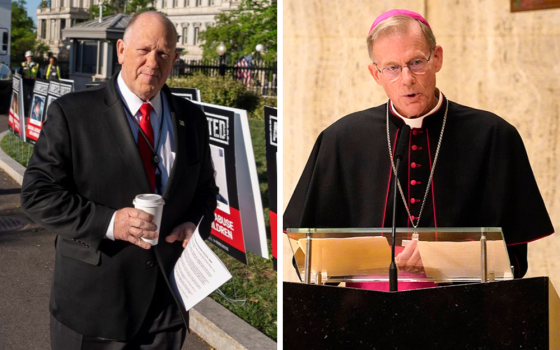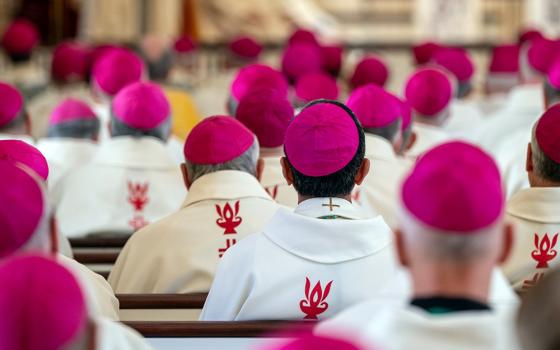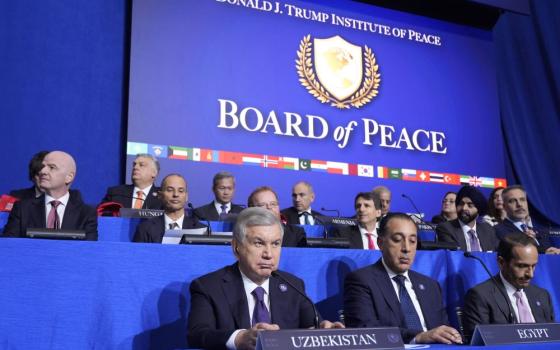
Sr. Innocent Joseph Ayyankanal, a member of the Missionary Sisters of Mary Immaculate, teaches tribal communities how to prepare herbal medicines at their homes in the Wayanad district of Kerala, southwestern India. (Courtesy of Sr. Innocent Ayyankanal)
Sr. Innocent Joseph Ayyankanal, a member of the Missionary Sisters of Mary Immaculate, has spent over 40 years promoting Ayurveda (traditional Indian medicine) and other forms of traditional medicine among rural and tribal communities in the Nilgiris district of Tamil Nadu and the Wayanad district of neighboring Kerala.
Ayyankanal has conducted more than 2,000 awareness classes across India in association with the Catholic Health Association of India to promote Ayurveda in rural India. She also trained nuns, priests and other health care workers, who now promote these remedies in their areas.
Born into a family of vaidyas (traditional healers), she has combined her knowledge of herbal medicine with her vocation as a nun.
Ayyankanal continues her mission even at 78, helping people in need and collaborating with organizations such as Shalom TV to promote traditional medicine.
She now resides at the Maryknoll Convent in Kunnalady in the Nilgiris district of the southern Indian state of Tamil Nadu, where she began her health care journey among tribal people in 1975.
Ayyankanal shared her five-decade-old mission with Global Sisters Report.
GSR: What inspired you to promote Ayurveda?
Ayyankanal: In 1967, I joined the Missionary Sisters of Mary Immaculate. After my first vows, I worked as a lab technician at Little Flower Hospital in Angamaly, a town, and Nilambur, a village, both in Kerala.
When my congregation opened a convent in Kunnalady, I joined the community. Soon, I realized this remote area had no health care facilities. So, I set up an allopathic dispensary to help the local people. However, many people couldn't afford allopathic medicines.
Moreover, we couldn't find money to buy modern medicines for them. This led me to think: "Why distribute expensive medicines when the people already have their remedies passed down through generations?"
My family, too, practiced traditional medicine. My lab technician training and family background helped me understand people's major health issues — stomach problems, bruises, injuries and burns.

Sr. Innocent Joseph Ayyankanal, a member of the Missionary Sisters of Mary Immaculate, visits a patient at home and applies herbal medicine to treat burns in a tribal home in the Wayanad district of Kerala, southwestern India. (Courtesy of Sr. Innocent Joseph Ayyankanal)
I began experimenting with local herbs to help the people. I wanted to use local remedies rather than rely on expensive allopathic medicines. So, I turned our allopathic clinic into [an] Ayurvedic [clinic].
In 1986, I attended a six-week training for rural health workers in Chennai [capital of Tamil Nadu] that focused on rural health care traditions.
Later, I was selected for another six-week training in rural medicine at the Asian Health Institute in Japan. I also visited Singapore and the Philippines as part of the training.
All this helped me further deepen my commitment to promoting traditional medicines.
Why did you start small clinics instead of large hospitals?
The founder of our congregation, Msgr. C. J. Varkey (1921-2009), used to tell us not to manage big hospitals but to focus on small clinics that can better serve the common people. His vision was to ensure that hospitals are not just large institutions but places where people receive care with a human touch.
Earlier, we used to set up small clinics near our convents. They provided necessary care without making things complicated or mechanized.
Now, our congregation manages an Ayurvedic hospital and a licensed medicine manufacturing unit at Pulpally [Wayanad district of Kerala]. Three nuns work there as ayurvedic doctors. We also have a modern clinic in Gudallur [Nilgiris district of Tamil Nadu].
Advertisement
Did your family background shape your work?
Yes, my family was a huge influence on my work. My grandfather and my father were respected traditional healers in Kadaplamattom, [Kerala's Kottayam district]. Later, my father migrated to Chemperi [Kerala's Kannur district].
I grew up seeing them prepare medicines using herbs. My father distributed herbal medicines for malaria, which was prevalent then. Hence, the use of herbs and natural remedies came naturally to me.
How has your work helped people, especially tribal communities?
My regular interactions with them helped me understand their health issues, but no hospital was available to treat them. I saw families spending most of their income on medicines and treatment.
So, my focus was to make health care more accessible to rural and tribal communities. I worked with organizations such as Caritas India and the Wayanad Social Service Society [under the Diocese of Mananthavady]. I developed easy-to-make herbal remedies. I made family kits to store emergency medicines.
Another move was to distribute pills made from a mix of herbs that helped cure diarrhea and stomach problems. My medicated oil, made with eight different herbs, helped heal bruises, sprains and minor fractures.
I also taught women in parishes and villages to prepare these medicines at home. This helped them care for their families without traveling to faraway hospitals.

Sr. Innocent Joseph Ayyankanal, a member of the Missionary Sisters of Mary Immaculate, conducts a session on herbal medicines for tribal communities in the Wayanad district, Kerala, southwestern India. (Courtesy of Sr. Innocent Joseph Ayyankanal)
What challenges have you faced in promoting traditional medicine?
It has not been an easy journey. The main challenge came from supporters of allopathic or modern medicines.
In 1984, we organized an herbal expo as part of the anniversary celebrations for the Catholic Health Association of India at St. John's Hospital in Bengaluru [Karnataka state]. Unfortunately, many medical professionals criticized us. They didn't accept our approach and questioned the effectiveness of Ayurveda and traditional medicines.
Despite the opposition, we didn't give up. We published a book that shared all the information we had gathered about herbal medicine. This helped spread awareness and make people more open to traditional remedies.
Another major challenge was working with tribal communities. Tribal people have their traditional healing practices and medicines. They believed that sharing knowledge of their remedies with others would upset their deities. With great difficulty, we managed to learn their methods.
Reaching people in remote areas was another challenge. I often had to walk long distances through forests to visit patients in tribal villages. Patients do not come to us; we have to go to them. I had to walk some 20 km (about 12.4 miles) a day.
On one occasion, I was chased by wild elephants on my way to a village. I ran and found shelter in a nearby house. A while later, people brought a wounded person to us, who had been attacked by an elephant. It really shook me, but convinced me of the importance of our work.
![Sr. Innocent Joseph Ayyankanal is pictured with fellow members of the Maryknoll Convent of the Missionary Sisters of Mary Immaculate at Kunnalady, Tamil Nadu, southern India. (From left: Srs. Camilla Joseph, Princy Devasia, Prasanna Joseph, Innocent Joseph Ayyankanal [center], Roselet Varkey, Sinobi Joseph and Jobitta George (George Kommattam)](/files/2025-08/4.jpg)
Sr. Innocent Joseph Ayyankanal is pictured with fellow members of the Maryknoll Convent of the Missionary Sisters of Mary Immaculate at Kunnalady, Tamil Nadu, southern India: From left: Srs. Camilla Joseph, Princy Devasia, Prasanna Joseph, Innocent Joseph Ayyankanal (center), Roselet Varkey, Sinobi Joseph and Jobitta George. (George Kommattam)
You dealt with sickle cell among the tribal people. How did you tackle it?
Sickle cell disease is a hereditary disease that affects the shape of red blood cells. The red blood cells become crescent-shaped, causing blockages and pain. The disease was prevalent among tribals in Wayanad. After extensive research, I developed herbal pills that were effective in managing sickle cell.
A memorable moment in my work was with a girl from Pulpally, who was about to die. After I administered her medicines, she recovered fully. She now works in our hospital in Pulpally, preparing medicines.
Why did you become a nun?
My family influenced my decision. My father was a social worker, and his work with local people inspired me to serve others. During my childhood, I saw nuns from our congregation living with poor farmers evicted from Shimoga in Karnataka. Those sisters took patients to the hospital and back. Their selfless act moved me.
So, I wanted to become someone who could not only care for people's physical health but also become a source of spiritual care.








